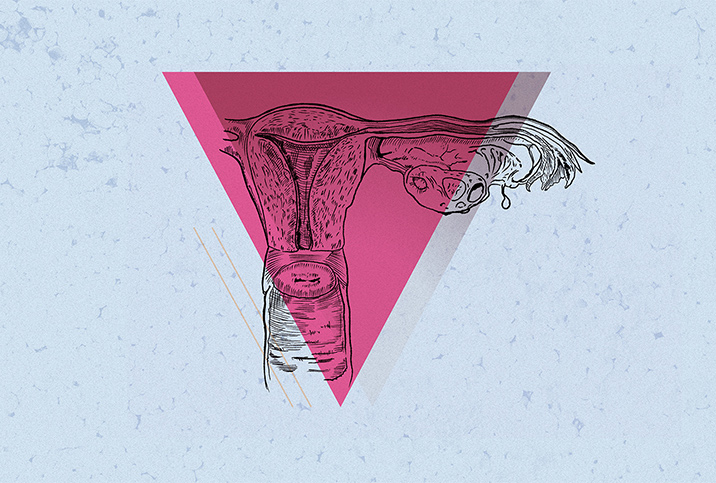Why Does Ovarian Cancer Recur so Frequently?

According to the American Cancer Society, an estimated 19,710 Americans will receive a new ovarian cancer diagnosis in 2023. In addition, more than 7 out of 10 people who are treated successfully will experience recurrent ovarian cancer, meaning it typically returns after a period of no detection.
Varying factors, such as the stage of cancer when it is diagnosed and the type of cancer, can contribute to recurrence rates.
Ovarian cancer develops when cells in and around the ovaries begin to mutate. This condition can affect one or both ovaries and manifests as one of three main types: epithelial ovarian cancer, stromal tumors or germ cell tumors.
Unfortunately, ovarian cancer often goes undiagnosed until its later stages, making it more difficult to treat and causing elevated mortality rates. Only about 20 percent of ovarian cancer is detected in the early stages, likely for two reasons. One, it often presents no symptoms. Two, there are limited screening options. The two screening options for ovarian cancer are typically a transvaginal ultrasound and a cancer antigen 125 (CA 125) blood test.
Why ovarian cancer returns
The frequency of later detection plays a significant role in ovarian cancer recurrence rates.
"Ovarian cancer is the leading cause of death in women diagnosed with gynecologic cancer. Early diagnosis decreases morbidity and mortality and improves outcomes," said Rachel Villanueva, M.D., a board-certified OB-GYN at Rosh Maternal & Fetal Medicine in New York City.
In Western countries, ovarian cancer is the fifth-leading cause of cancer death among women. It is first among gynecological cancers.
The stage at diagnosis is a telling predictor of cancer coming back.
"However, ovarian cancer in its early stages doesn't always have symptoms or effective screening, and it is often diagnosed at an advanced stage, thereby increasing the risk of recurrence," Villanueva said.
A 2020 study published in the journal Gland Surgery stated that recurrence is prevalent in about 25 percent of early-stage ovarian cancer and more than 80 percent in advanced-stage ovarian cancer.
However, even in advanced stages, symptoms could be nonspecific, discounted and mistaken for other medical issues, which could further delay treatment.
"Stage III has a 70 to 90 percent risk of recurrence, while stage IV has a 90 to 95 percent chance," Villanueva said.
Another reason for recurrence is that the first round of treatment might not effectively eliminate malignant cells in later stages.
"Ovarian cancer is often recurrent if caught at later stages," said Mona Jhaveri, Ph.D., a cancer researcher and founder of Music Beats Cancer in Washington, D.C. "This is because the first round of treatment, which usually involves surgery followed by chemo, too often fails to eliminate all malignant cells. Inevitably, these residual cells can adapt and become more resistant to treatment and more metastatic."
Treating ovarian cancer
"Treatment is individualized for the patient and depends on the type and stage of cancer, as well as the patient's personal health factors and comorbidities," Villanueva explained. "In general, the conventional standard for treatment involves surgery to reduce the tumor burden or as much of the tumor as possible; this is called a debulking procedure.
"Chemotherapy is also often an additional treatment modality, sometimes before but most often after surgical management," she added.
When ovarian cancer recurs, recommended treatment options may vary based on the individual.
"Treatment teams, led by a gynecologic oncologist specialist, are multidisciplinary to address all aspects and needs of the patient. Efficacy includes adherence to accepted treatment guidelines, quality of hospital and surgeon, quality of surgical management and, most importantly, that the maximal amount of tumor is removed at the time of surgery," Villanueva said.
While it is common for ovarian cancer to recur, researchers have advanced therapeutic options to manage the disease. Jhaveri said detecting the cancer early and when it's still curable can be vital for survival rates.
Risk factors for recurrence
The stage of ovarian cancer at diagnosis significantly impacts the risk for recurrence. With each stage—they range from I to IV, with IV being the most severe—the chances of recurrence increase.
A recurrence may afflict a localized area or spread.
"There are many risk factors, such as BRCA mutation or a family history of breast and ovarian cancer. However, in most cases, it is random, and there is no reliable way to screen women for this cancer. This is unfortunate considering how deadly this cancer is when found at late stages," Jhaveri said.
Blood tests can help monitor signs of recurrence.
"One of the ways we monitor recurrence is by detecting an increase in the amount of CA 125, an ovarian cancer marker in the blood. This is an imperfect and dated system, but so far, this is the gold standard for flagging recurrence," Jhaveri said.
Paying close attention to any onset of new symptoms can be helpful.
"Signs of recurrence are similar to signs of initial disease, so it's important to follow up on any persistent symptoms, even if they're not necessarily very specific," Villanueva said.
While paying attention to the onset of new symptoms is vital, so is understanding other potential risk factors.
"Listening to your body and investigating unique and persistent symptoms is crucial," Villanueva said. "It is also important for individuals to understand their risk factors: family, genetics, age and nulliparity [no childbirths]. If you are at increased risk, it is important to discuss with your physician or other provider ways in which you may be able to decrease your overall risk through medical or surgical management."
Villanueva pointed out that racial disparities permeate cancer outcomes.
"Black women should be especially aware that they have poorer outcomes for this very deadly disease, including increased mortality and recurrence and decreased likelihood that appropriate treatment guidelines are followed," she said. "Disparities in incidence and outcomes among all cancers in minority populations are well-documented. Finding a trusted expert in the field is crucial for all women, but especially those of color."
Ovarian cancer recurrence is common because of later detection and screening. Knowing this should raise awareness and help survivors stay vigilant for the return of symptoms. Appropriate access to medical care also profoundly influences adequate and timely treatment.
A support structure is another element to treating and surviving the disease. Ovarian Cancer Research Alliance (OCRA) offers support to anyone experiencing an ovarian cancer recurrence.

















